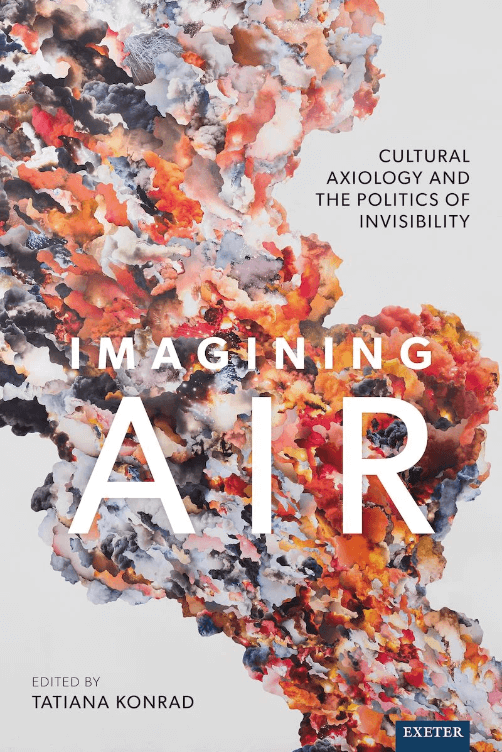Corey Dzenko, Ph.D., associate professor of art history in the Department of Art and Design, recently published a book chapter in the collection of essays, “Imagining Air: Cultural Axiology and the Politics of Invisibility.” Dzenko was invited by Tatiana Konrad, Ph.D., of the University of Vienna’s Department of English and American Studies, to participate in both a lecture series and book publication around the topic of air and pandemics.

Dzenko’s chapter is titled “Rumpled Bedsheets and Online Mourning: Social Photography and the COVID-19 Pandemic—Haruka Sakaguchi’s ‘Quarantine Diary’ and Marvin Heiferman’s Instagram account @whywelook.” In this chapter, Dzenko examines two photographic projects made by Sakaguchi and Heiferman in order to consider the way photography, especially as shared through social media and the internet, became a place for Sakaguchi and Heiferman to live through their early experiences of the COVID-19 pandemic.
Sakaguchi created a photograph a day to cope with living alone through the first month of New York City’s lockdown in March-April 2020. She collected and shared this series of images with diaristic text in her “Quarantine Diary” (2020). Heiferman turned to his Instagram account, @whywelook, to post a photograph a day when words failed him as he mourned the sudden death of his husband, trail-blazing cultural historian, writer, and social justice advocate Maurice Berger. Sakaguchi and Heiferman both made their private lives more public by sharing their photographs, thus giving space for viewers to contend with their own experiences living through the pandemic. By doing so they also, as Dzenko demonstrates, show how the politics of identity and place intersect with photography and the COVID-19 pandemic.
Dzenko presented an earlier version of this paper in Monmouth University’s Department of History and Anthropology’s Works in Progress Seminar and in the University of Vienna’s lecture series, Air: Perspectives from the Environmental and Medical Humanities (June 2022). Because the Austrian Science Fund supported Konrad’s lectures series and book publication, the book is available open access through the University of Exeter Press.
